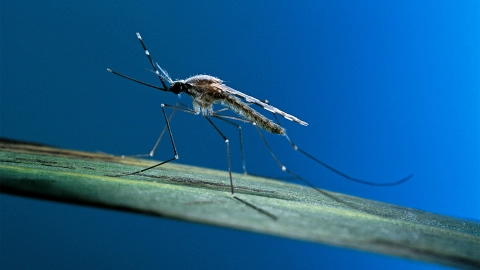ICD-Code B54: Unspecified malaria
You have malaria.
You have been infected with specific pathogens. These pathogens are single-cell organisms and they propagate in the red blood cells, in particular. This damages the red blood cells, and they may burst.
If the red blood cells burst, the pathogens are distributed to the entire body via the blood. This usually causes a high temperature and shivering. The patient often feels alternately hot and cold. They are usually less resilient, too, and tired. They often have headaches and aching limbs as with the common cold.
The pathogens are often transmitted by certain mosquitoes. This requires warm conditions. This is why malaria usually occurs in warm regions. You should try especially to protect yourself against mosquitoes there.
Additional indicator
On medical documents, the ICD code is often appended by letters that indicate the diagnostic certainty or the affected side of the body.
- G: Confirmed diagnosis
- V: Tentative diagnosis
- Z: Condition after
- A: Excluded diagnosis
- L: Left
- R: Right
- B: Both sides
Further information
Source
Provided by the non-profit organization “Was hab’ ich?” gemeinnützige GmbH on behalf of the Federal Ministry of Health (BMG).

